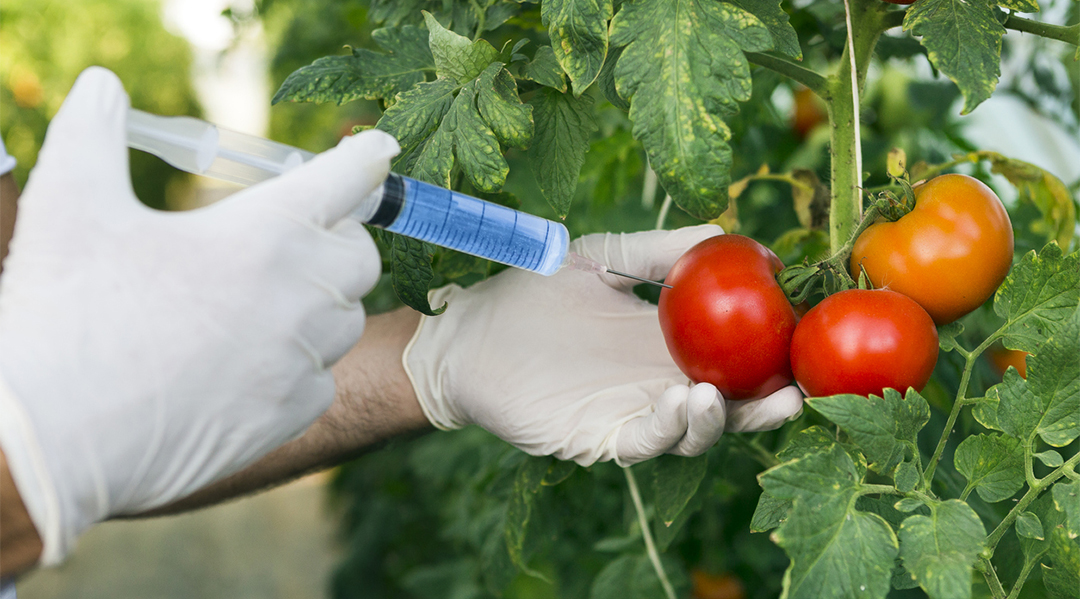Qualitative PCR Testing for GMO Detection
The detection and identification of genetically modified organisms (GMOs) in agricultural products is critical for ensuring compliance with international regulations, safeguarding consumer health, and maintaining market integrity. Qualitative Polymerase Chain Reaction (PCR) testing represents a robust and reliable method to detect the presence of specific GMOs within samples.
Qualitative PCR testing involves amplifying specific regions of DNA using primers that are designed to target unique sequences found in genetically modified organisms. This technique allows for highly sensitive detection, typically at levels as low as 0.1% contamination. The process begins with sample preparation, where the target organism's genetic material is extracted and purified from the food or feed matrix.
The accuracy of PCR testing depends heavily on specimen preparation. Samples must be homogenized to ensure even distribution of DNA across the test. Subsequently, nucleic acids are isolated using methods such as phenol-chloroform extraction or commercial kits. The extracted DNA is then quantified and diluted appropriately for the subsequent reaction.
The PCR machine plays a crucial role in amplifying the target sequences. Typically, this involves denaturation at 95°C to separate double-stranded DNA into single strands, followed by annealing at temperatures specific to the primers (often around 60°C), and extension at 72°C for several cycles. The number of cycles is critical; too few may result in incomplete amplification, while excessive cycling increases the risk of non-specific products.
For accurate results, it’s essential that the PCR laboratory adheres to strict protocols and uses validated reagents and primers. This ensures consistent performance across multiple tests and minimizes errors due to reagent variability or operator bias.
The final step is visualization of the amplified products via gel electrophoresis or real-time detection technologies like SYBR Green staining or dual-labeled probes. These methods allow for easy differentiation between expected bands or fluorescence signals, confirming the presence of the target GMOs in the sample.
Scope and Methodology
| Sample Type | Target Organisms | Testing Process |
|---|---|---|
| Fruits and Vegetables | GMO varieties like Bt corn or Roundup Ready soybeans | Sample preparation, DNA extraction, PCR amplification, gel electrophoresis |
| Cereals and Pulses | GMO varieties like Golden Rice or high-oleic acid canola | Same as above |
The methodology for qualitative PCR testing is stringent, ensuring accurate detection of GMOs in food and feed. The process begins with the collection of representative samples from farms or processing facilities. These samples are then sent to a certified laboratory where they undergo rigorous preparation steps.
For cereals and pulses, which often contain multiple components, it’s essential to ensure that all parts of the sample are uniformly processed. This might involve grinding or sieving if necessary before proceeding with DNA extraction.
Eurolab Advantages
- ISO/IEC 17025 accreditation ensuring quality and reliability in testing.
- Absolutely state-of-the-art PCR facilities equipped with the latest technology.
- Experienced scientists specializing in GMO detection.
- Access to comprehensive databases of genetic sequences for accurate priming.
- Comprehensive training programs for clients seeking to improve their own testing capabilities.
Eurolab’s commitment to excellence is reflected not only in our advanced facilities but also through our continuous engagement with the scientific community. Our team stays updated on the latest research and regulatory requirements, ensuring that we can provide accurate, up-to-date services for GMO detection.
International Acceptance and Recognition
- The European Union’s legislation requiring mandatory labeling of food products containing more than 0.9% GMOs.
- The United States Department of Agriculture (USDA) guidelines for voluntary disclosure of GMO content in processed foods.
- China’s stringent regulations on the importation and domestic distribution of genetically modified crops.
Eurolab’s qualitative PCR testing services are widely recognized globally. Our tests are compliant with international standards such as ISO 17025, ensuring that our results carry significant weight in regulatory bodies worldwide.





